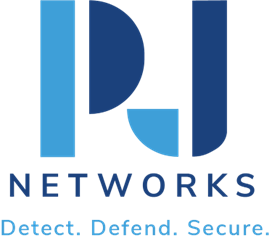Top 10 Cyber Security Firms: A Comprehensive Review
Introduction
As cyber threats are constantly changing in the digital world, the importance of having cybersecurity firms is getting more crucial. For businesses working to keep their sensitive data safe for the sake of customer trust, choosing the correct cybersecurity partner is crucial. They are the key highlights of this blog post which covers top 10 cybersecurity firms and their services, pros & cons (strengths & weaknesses). This guide should help businesses a clearer idea of which firm to consider when it comes to studying their specific requirements in cybersecurity.
Methodology for Evaluation
Performance evaluations of these cybersecurity companies were pegged on several quantifiable metrics including;
- Service Offerings: The specific security services supported, for example, risk assessment, threat intelligence, network security and incident response.
- Industry Experience Records: Make sure to check if they are experienced in providing suitable security defenses.
- Innovation and Technology: Cutting-edge technology and innovative strategies for outwitting cyber threats.
- Customer Service: Explanation on availability and promptness of customer service team.
- Pricing and Cost-Efficiency: How much does the service cost in terms of how well and broadly it served.
Company Reviews
1. FireEye
Services: Threat Intelligence, Advanced Threat Protection
STRENGTHS: Strong in threat intelligence and incident response. FireEye is always at the cutting edge of cybersecurity research.
Cons: Cost can prohibit some SMBs.
2. Palo Alto Networks
Services: Firewalls, Security Analytics.
Strenghts: It provides a full suite of security products with an orientation towards advanced artificial intelligence and automation.
Cons: Might require a lot of training to follow complex deployment processes.
3. Symantec -the asset has moved to Broadcom.
Services: Endpoint security, cloud security
Strengths: Long-standing reputation in endpoint security, robust data protection capabilities
Cons: Third-party application integration is difficult
4. Check Point Software Technologies
Services: Network security, threat prevention.
Pros: Zero-day protection features Innovative Security tools
CONS: Advanced functions lead to higher costs
5. CrowdStrike
Services: Endpoint protection, incident response.
Strong: Solid cloud-based endpoint protection with its Falcon platform.
Weaknesses: Initial configurations are difficult for some companies
6. IBM Security
Services: Managed Security Services, Threat Intelligence.
Strengths: Advanced AI capabilities married with a solid portfolio of managed services
The Bad: IBM pricing can be extremely expensive for small organizations.
7. McAfee
Specialty: Threat prevention, cloud security.
Strengths: Strong antivirus, malware protection with deep cloud ties
Negatives: Has had some reputational issues in the past which has made some people skeptical whether it will continue to work.
8. Kaspersky Lab
Solutions: Antivirus, endpoint security.
Strengths: High-performing antivirus solutions with a focus on threat detection.
Cons: Some U.S. organizations may hold off due to political issues.
9. Trend Micro
Service: Hybrid cloud security, network defense.
Benefits: Known the best for providing end-to-end security solutions.
CONS: Can slow down certain systems during full scans due to the high level of resources necessary
10. Rapid7
Services: Threat detection, vulnerability management.
Strengths: Vulnerability Management and Quick Incident Response
Weaknesses: Restrictions to the extent of platform functionality flexibility.
Comparison Chart
| Company | Key Services | Strengths | Weaknesses |
|---|---|---|---|
| FireEye | Threat protection, threat intelligence | Understanding in threat intel | Steep pricing for SMBs |
| Palo Alto Networks | Firewall, security analytics | Comprehensive products | Complex deployment processes |
| Symantec | Endpoint, cloud security | Strong endpoint security | Integration challenges |
| Check Point | Network security, threat prevention | Innovations of protection | Advanced features are expensive |
| CrowdStrike | Endpoint protection, incident response | Cloud-hosted protection | Complex setup |
| IBM Security | Managed services, threat intelligence | AI capabilities | Expensive pricing |
| McAfee | Threat prevention, cloud security | Strong antivirus | Reputational problems |
| Kaspersky Lab | Antivirus, endpoint security | Good antivirus | Political risk |
| Trend Micro | Cloud security, network defense | Holistic solutions | Resource-intensive scans |
| Rapid7 | Threat detection, vulnerability management | Fast incident response | Platform flexibility issues |
Recommendations
Firms: Instead, perhaps the best way is to choose the kind of cyber security firm that matches well with your requirement. If you have to protect endpoints suc as ransomware or intellectual property, consider options such as Symantec etc. If you need best-of-breed intelligence and incident response—look to FireEye or IBM Security. For enterprises looking for cost-effective but still comprehensive solutions, they may find Trend Micro or Rapid7 to offer the best balance between their budgetary requirements and function. Furthermore, the geopolitical shouldn’t be memory-holed to avoid a critical approach regarding companies such as Kaspersky Lab.
Conclusion
Security is so ingrained into modern enterprise that the choice of a reliable and trustworthy cybersecurity provider has becomes essential. Using the overall judgements listed above that evalutes services based on their strengths and weaknesses, companies can decide if they have found the right safety net for combating increasingly sophisticated cyber attacks. Organizations can protect their data and even the functionality of their operations by investing in a cybersecurity firm.
